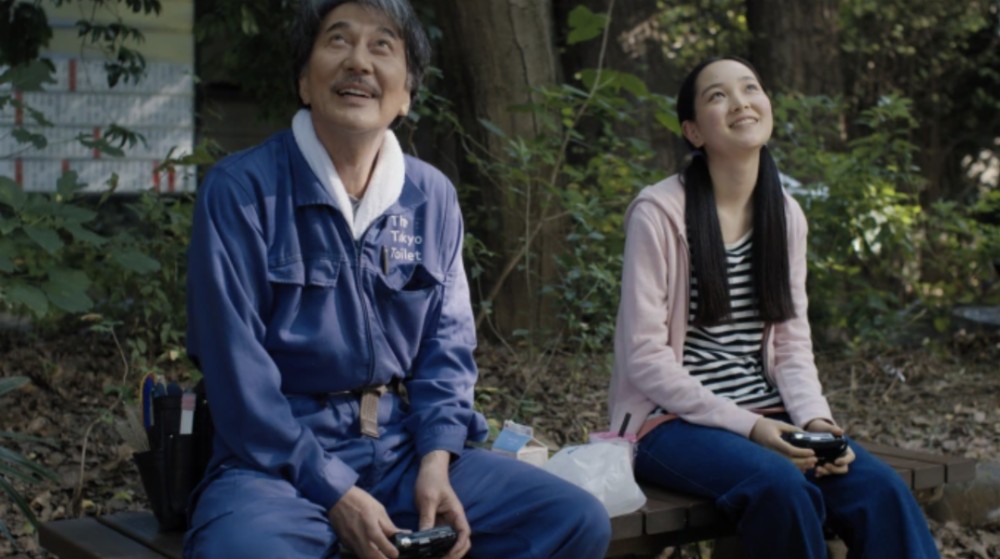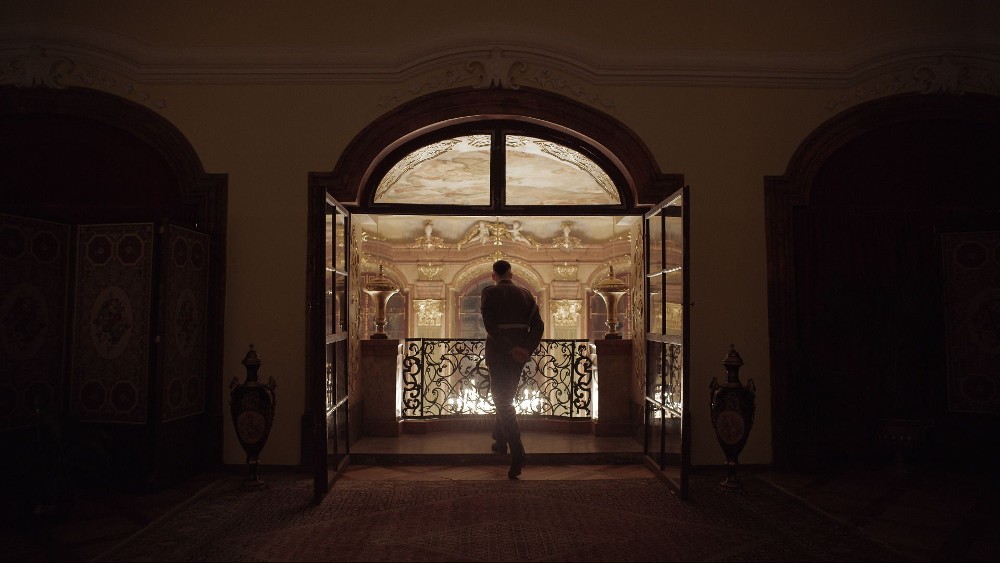When Zazie Beetz and Jack Quaid announced the nominations for the 96th Academy Awards on January 23, it was a mirror image to when Riz Ahmed and Allison Williams announced the nominees for last year’s ceremony on January 24, 2023, particularly for the films nominated in the Best International Feature Film Oscar category.
Just like last year, the nominations included four European films, and one non-European one, though this year’s Eurocentrism is even more blatant, with the fifth entry being “Japan’s” Perfect Days, directed by German helmer, Wim Wenders. Remember when people thought it was wrong that Angelina Jolie’s film could be Cambodia’s entry and snubbed it on that basis?
People may complain about Greta Gerwig, Margot Robbie, or Barbie, or even about the overall composition of the main Oscar races, but the Best International Feature Film Oscar—formerly known as the “Best Foreign Language Film Oscar”—is one of the most heterogeneous ones. White old male European stories have dominated since Fellini’s La Strada won the first award in 1957, and last year and this year will be no different. And it’s not like they did not have choices.
Several Latin American films explored the nuances of those cultures from past (Chile’s The Settlers) to present (Mexico’s Tótem and Brazil’s Pictures of Ghosts). Other regions offered scintillating dramas about modern issues, including Turkey’s About Dry Grasses and Morocco’s The Mother of All Lies. Alas, none of these stories seemed to speak to the subset of the Academy that signs up to review the films and propose a shortlist to the membership. Eurocentric themes, typically surrounding the stories of straight middle-aged men, do instead.
Amid these plentiful other stories, the United Kingdom’s The Zone of Interest—about a German general during the war, commandeering an extermination camp—will stroll to victory. (Last year, Germany’s All Quiet on the Western Front took the prize.) Never in the history of the Oscars has a movie been nominated for both Best International Feature and Best Picture and lost the former award, and this will not be the first.
Instead, it will be – and somewhat surprisingly – England’s first win in three tries to get into the Foreign Language/International Feature race. England does not typically produce films in another language that result in Oscar consideration, and rest assured that the Brits All Alright-movies produced in England have won the Best Picture Oscar repeatedly and multiply. Only two other countries (France with The Artist; South Korea with Parasite) can claim that distinction.
Read on for capsule reviews of the five films nominated for Best International Feature Film, which, on net and to be fair, is one of the strongest quintet in some time—even if none of the nominees stands out as a timeless masterpiece that will live forever.

Io Capitano (Italy)
Italy has 33 nominations in this category—second only to France—and the most wins, at 14. This year, the honor belongs to Matteo Garrone, whose critically acclaimed films Gomorrah and Dogman were his country’s selections for this race in years past, but has only now broken through with the touching tale of two immigrant cousins, Io Capitano. In this timely film about a global but also quintessentially European issue, Seydou (Seydou Sarr) and Moussa (Moustapha Fall) run away from their Senegalese home in search of a brighter future. Their life at home will soon seem like heaven, though, considering the various challenges they will face in their travails across the Western Sahara, Northern African cities rife with criminals who exploit migrants, and the treacherous journey across the Mediterranean. Two touching performances at the heart of the film combine with beautiful desert cinematography (though the film is no Dune) to deliver a surprisingly and contemplative piece with two characters easy to root for. Italy, however, will have to wait another year for Oscar #15.
Grade: B+

Perfect Days (Japan)
German director Wim Wenders’ fascination with Tokyo’s toilet culture led to this project, which also netted Japan its 18th Academy Award nomination – at five wins, it sits in third place comfortably behind France with 12. In Perfect Days, Wenders follows the meticulous, methodical Hirayama (Koji Yakusho), a toilet cleaner in the heart of Tokyo. Hirayama ambles about his days, dedicated to his work, devoted to his passion for trees—which he revels in observing during his curated breaks—and contemplative about his life. When he interacts with others, it is always respectfully, or perhaps to lament the vicissitudes of today’s youth. Hirayama spends his days surrounded by rituals, including an after work beer at a pub that knows his name, reading pieces of his favorite novels, and meditating quietly at home. Though the film is as introspective, and even as brooding, as it sounds, what emerges is quite a beautiful rendition of the beauty of humanity through the eyes of an otherwise unremarkable person. The message is in the title: it is in these simple, dedicated, monotonous but in fact enthralling rituals that one finds happiness, and perhaps even perfect days. Again, however, Japan will not add to its Oscar total, which it last did in 2021 with Drive My Car.
Grade: A-

Society of the Snow (Spain)
Netflix’s Society of the Snow is Spain’s 21st nomination, and its strongest chance at tying Japan’s five-Oscar total since 2019’s Pain & Glory. This stunning film recounts the true story of an Uruguayan rugby team and others who survive a horrific plane crash in the Andean heights in 1972. Director J.A. Bayona is no stranger to recounting violent, personal, physical tragedies, having directed Naomi Watts to a stunning rendition of the 2004 Indonesian tsunami in The Impossible. Here, Bayona once again intermixes heart-pounding excitement and action, together with deeply emotive humanity. The ensemble cast of survivors all have different pain thresholds, as well as, importantly, moral compasses about what steps are ethical in order to survive. While the moral conundrum presented by this scenario is as old as law textbooks themselves, Society of the Snow’s understated yet powerful depiction make it seem entirely novel. The film—also nominated for the Academy Award for Makeup & Hairstyling—is unquestionably the strongest of the five and the only one with a prayer to take down the likely winner.
Grade: A

The Teacher’s Lounge (Germany)
Germany’s latest Oscar nomination–a stunning 13 since reunification, with West Germany tallying another 8–is perhaps the most interesting film of the bunch. In The Teacher’s Lounge, Carla (Leonie Benesch), a thoughtful young teacher at a local high school, confronts a myriad of problems as she attempts to confront what she views as modern prejudices rooted in racism and xenophobia. Someone is stealing money from other students, and when the school administration, rather stereotypically and without basis, suspects and unsubtly accuses a migrant child and his family of being behind the crime, Carla attempts to step in. But her good intentions quickly pave a road to hell that she could not have foreseen, with questions about privacy, freedom of speech, and immigration intertwining in and out of the teacher’s lounge where most of the debates take place. Carla truly believes that “doing the right thing” is, well, the right thing, but Director and Screenwriter Ilker Catak offer a quiet counterpoint to today’s supposedly well-meaning liberal European democracies by noting that things are a little more complicated. Students, parents, and faculty members alike all behave complexly—at times frustratingly so, at times admirably. As the tension rises slowly but surely to its boiling point, the set piece, despite being admittedly somewhat of a setup, delivers precisely as you would expect it to, having masterfully and thoughtfully traversed an impressive range of modern European problems. (Sense a theme yet?)
Grade: A

The Zone of Interest (United Kingdom)
Last but not least, we come to this year’s most likely winner, Jonathan Glazer’s The Zone of Interest. Though it is easy to tally how many Oscars each country has received, has anyone tallied how many Holocaust/World War II films have triumphed in this race? If that theme were its country, it would arguably be in second place to Italy in terms of the number of awards, and this year will add to the tally.
In this film, loosely based on a 2014 novel by Martin Amis, we follow the commander of the Auschwitz concentration camp (Christian Friedel) and his family as they amble about their daily lives, with the horrors the audience knows about but never sees in this film, playing out sordidly in the sounds of the background. The theme is straightforward—the banality of evil. The commander, his wife, and his children have picnics by the river, tend to their gardens, go to work and school, celebrate birthdays, and argue over mundane topics at the dinner table, including fashion and the commander’s surging career. If The Teacher’s Lounge is somewhat of a setup, this film is entirely a layup, and one that is not particularly clever or original, at that.
Still, the critical narrative took hold over this one, and it helps tremendously that Sandra Hüller—nominated for Best Actress for a different foreign film, Anatomy of a Fall—delivers a strong supporting turn, and that its director is also up for Best Director. To me, the film does not tread any new grounds—it retells the notion that, in this race alone, was most recently told by Son of Saul, which is that evil can be found where and when you least expect it. To be sure, the horrors the film depicts should never be forgotten, but the message at the core of the film seems itself banal, considering the state of the world in 2024.
Grade: B
The Academy of Motion Picture Arts and Sciences will announce the winners of the 96th Annual Oscars across 23 categories on March 10, 2024.
Twitter: @jdonbirnam
Instagram: @awards_predix



